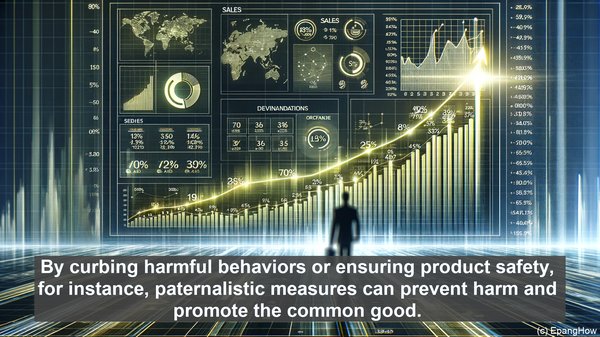Introduction: The Duality of Consumer Choices
Hello, and welcome to our article on consumer sovereignty and paternalism. In today’s world, individuals are faced with a myriad of choices, be it in the marketplace or other aspects of life. But how much freedom should consumers have in making decisions? And where does the line between personal autonomy and societal protection lie? These are the questions we’ll be exploring in this article.

Consumer Sovereignty: The Power of Choice
Consumer sovereignty is a concept that places the ultimate decision-making power in the hands of consumers. It asserts that individuals, through their purchasing choices, determine what goods and services are produced and how resources are allocated. In essence, the market is seen as a democratic arena, where demand and supply interact to shape the economy. This ideology often aligns with the principles of free-market capitalism, emphasizing minimal government intervention and the importance of competition.
The Implications of Consumer Sovereignty
At first glance, consumer sovereignty seems like an ideal scenario. After all, who wouldn’t want the ability to shape the market according to their preferences? However, there are certain caveats to consider. For one, the concept assumes that consumers are well-informed and rational decision-makers, always acting in their best interest. But in reality, this may not be the case. Factors like limited knowledge, persuasive advertising, and even psychological biases can influence consumer choices, leading to suboptimal outcomes. Additionally, consumer sovereignty doesn’t account for externalities, such as the environmental or social impact of certain products. This is where the counterbalancing force of paternalism comes into play.
Paternalism: Balancing Autonomy and Protection
Paternalism, in contrast to consumer sovereignty, advocates for a more interventionist approach. It posits that certain decisions should be made on behalf of individuals, with the aim of safeguarding their well-being. This can manifest in various forms, from government regulations and industry standards to corporate social responsibility initiatives. The underlying philosophy is that individuals may not always have the necessary knowledge or foresight to make optimal choices, and thus, some level of guidance or restriction is warranted.
The Ethical Debate: Nanny State or Necessary Safeguard?
The concept of paternalism is not without its critics. Some argue that it infringes upon personal freedoms, creating a ‘nanny state’ where individuals are treated as children rather than autonomous beings. They contend that even if certain choices may be deemed ‘irrational’ or ‘unhealthy’ by some, it should ultimately be the individual’s prerogative. On the other hand, proponents of paternalism highlight the potential benefits, both at the individual and societal level. By curbing harmful behaviors or ensuring product safety, for instance, paternalistic measures can prevent harm and promote the common good.

Striking a Balance: The Middle Ground
In reality, the dichotomy between consumer sovereignty and paternalism is not always black and white. Many argue for a nuanced approach, where individual autonomy is respected, but with certain safeguards in place. This can involve measures like improved consumer education, transparent labeling, or the creation of default options that nudge individuals towards better choices. The goal is to empower consumers while also mitigating potential harms. Achieving this balance is an ongoing challenge, one that requires input from various stakeholders, including policymakers, businesses, and consumer advocacy groups.
